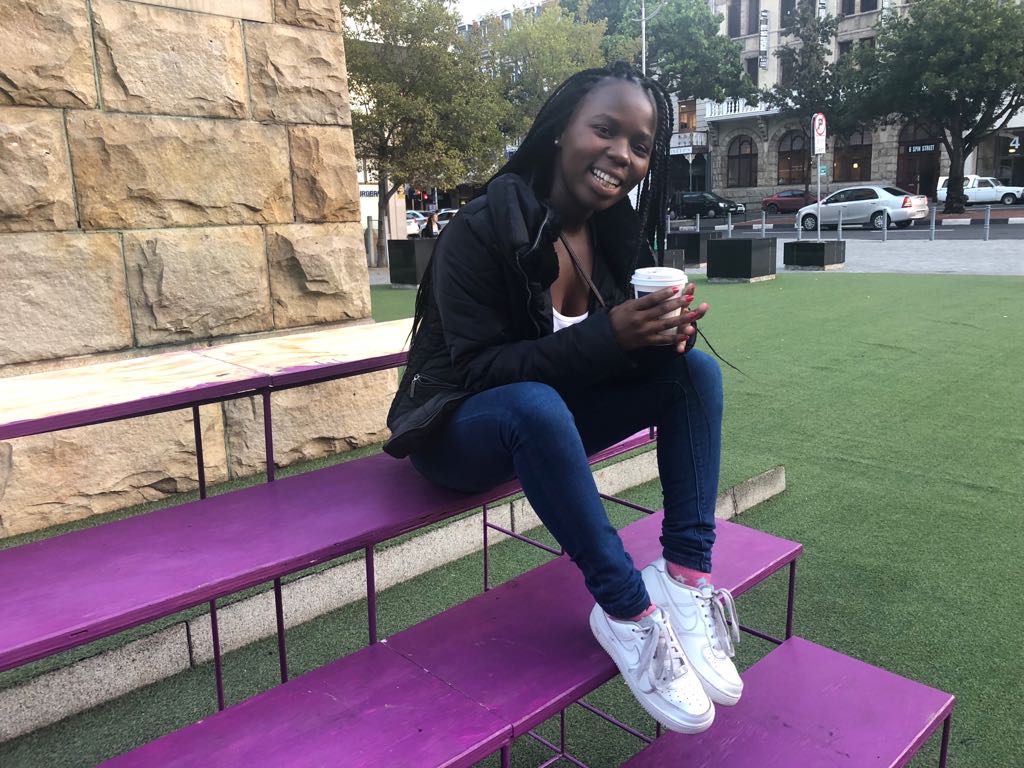
For Kholiswa Ntshinga, the possibilities of code are endless – she codes because she loves to solve problems, and she’s found the tools that create solutions. We caught up with the junior software developer and CodeSpace graduate to hear about her career, creativity, and how the tech industry can change for the better.
CodeSpace: Let’s start at the beginning. Why did you decide to learn to code?
Kholiswa: I came from a coding background, in high school, from grade 8, I was introduced to coding. I fell in love with coding as years went by because coding is basically problem-solving – with coding there’s always the opportunity to be both creative and innovative.
What does a typical day look like for you?
There’s never really a typical day. Every day is different from the other.
Could you tell us a little about your career so far?
I’m working at a company called Saya-Setona, based in Joburg, recently relocated from Cape Town. I’m working as a junior software developer, alongside with some amazing females devs who I went to school with. I’ve been in the IT industry for over a year now.
Many people talk about coding literacy being a useful skill to have in terms of job opportunities, but what makes you see beyond that to talk about tech as a tool to solve far-reaching problems?
I like to think of coding as being presented with a blank canvas problem and experimenting with the best, easiest, fastest approach to turn that blank canvas into a beautifully crafted ad efficient solution. We use tech to solve the far-reaching problems we are facing because of all the possibilities code offers us.
What’s your proudest achievement so far?
My proudest achievement so far is representing South Africa in Beijing at the Beijing Youth Science and Creation Competition – scooping a special award and coming second in the world.
Why is it important that women get more involved in the world of tech?
Women bring intuitive awareness of consumer needs to the industry. They develop solutions with both creativity and logic.
What, in your opinion, are the biggest barriers that have held women back from careers in coding?
I think one of the reasons is the fact that in the initial days of coding, the earliest voices advocating for it were mostly male. Secondly, there have been limited opportunities created for women in the tech industry. One of the barriers I’ve also noticed is that it has to do with one’s self-esteem. We know many women who question if they’re good enough for this particular field, and that also plays a role in the number of women entering the pipeline of tech jobs.
What would be your advice to girls and women wanting to begin their tech education?
My advice would be, if you love problem-solving, being innovative, creating amazing projects, and having the drive and passion to challenge the status quo, then this career is for you.
If you could change or improve one thing about the tech industry, what would it be?
I would improve the number of programmes that teach girls coding. The ones that are currently exposing girls to coding are doing amazing work and unfortunately, they can only take a limited number of students. If we could have more of such, I know so many girls who would want to learn to code through such programs.
Before her time at the CodeSpace Academy, Kholiswa got her tech grounding with Code for Cape Town. Watch as she talks tech on TV with more of the Code4CT team:
